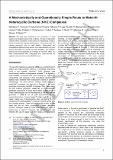Files in this item
A mechanistically and operationally simple route to metal-N-heterocyclic carbene (NHC) Complexes
Item metadata
| dc.contributor.author | Nolan, Steven P. | |
| dc.contributor.author | Tzouras, Nikolaos | |
| dc.contributor.author | Nahra, Fady | |
| dc.contributor.author | Falivene, Laura | |
| dc.contributor.author | Cavallo, Luigi | |
| dc.contributor.author | Saab, Marina | |
| dc.contributor.author | Van Hecke, Kristof | |
| dc.contributor.author | Collado, Alba | |
| dc.contributor.author | Collett, Christopher | |
| dc.contributor.author | Smith, Andrew David | |
| dc.contributor.author | Cazin, Catherine S.J. | |
| dc.date.accessioned | 2021-03-12T00:36:23Z | |
| dc.date.available | 2021-03-12T00:36:23Z | |
| dc.date.issued | 2020-03-12 | |
| dc.identifier | 266242820 | |
| dc.identifier | 1155467e-335f-4ee4-90c0-1292dac553f0 | |
| dc.identifier | 85081984015 | |
| dc.identifier | 000523485500014 | |
| dc.identifier.citation | Nolan , S P , Tzouras , N , Nahra , F , Falivene , L , Cavallo , L , Saab , M , Van Hecke , K , Collado , A , Collett , C , Smith , A D & Cazin , C S J 2020 , ' A mechanistically and operationally simple route to metal-N-heterocyclic carbene (NHC) Complexes ' , Chemistry - A European Journal , vol. Early View . https://doi.org/10.1002/chem.202000564 | en |
| dc.identifier.issn | 0947-6539 | |
| dc.identifier.other | ORCID: /0000-0002-2104-7313/work/70919752 | |
| dc.identifier.uri | https://hdl.handle.net/10023/21620 | |
| dc.description | We gratefully acknowledge VLAIO (SBO project CO2PERATE), King Saud University (Distinguished Scientist Fellowship Program) and King Abdullah University of Science and Technology for support. The Special Research Fund (BOF) of Ghent University is also acknowledged (Doctoral Scholarship to N.V.T.). COST action (CA15106-CHAOS) is thanked for mobility support to N.V.T. Umicore AG is acknowledged for generous gifts of materials. | en |
| dc.description.abstract | We have been puzzled by the involvement of weak organic and inorganic bases in the synthesis of metal‐N‐heterocyclic carbene (NHC) complexes. Such bases are insufficiently strong to permit the presumed required deprotonation of the azolium salt (the carbene precursor) prior to metal binding. Experimental and computational studies provide support for a base‐assisted concerted process that does not require free NHC formation. The synthetic protocol was found applicable to a number of Transition Metal‐ and Main Group‐centered NHC compounds and could become the synthetic route of choice to form M‐NHC bonds. | |
| dc.format.extent | 757576 | |
| dc.language.iso | eng | |
| dc.relation.ispartof | Chemistry - A European Journal | en |
| dc.subject | N-Heterocyclic carbene | en |
| dc.subject | Synthesis | en |
| dc.subject | Weak base | en |
| dc.subject | Mechanism | en |
| dc.subject | Complexes | en |
| dc.subject | QD Chemistry | en |
| dc.subject | 3rd-NDAS | en |
| dc.subject.lcc | QD | en |
| dc.title | A mechanistically and operationally simple route to metal-N-heterocyclic carbene (NHC) Complexes | en |
| dc.type | Journal article | en |
| dc.contributor.institution | University of St Andrews. School of Chemistry | en |
| dc.identifier.doi | 10.1002/chem.202000564 | |
| dc.description.status | Peer reviewed | en |
| dc.date.embargoedUntil | 2021-03-12 |
This item appears in the following Collection(s)
Items in the St Andrews Research Repository are protected by copyright, with all rights reserved, unless otherwise indicated.

